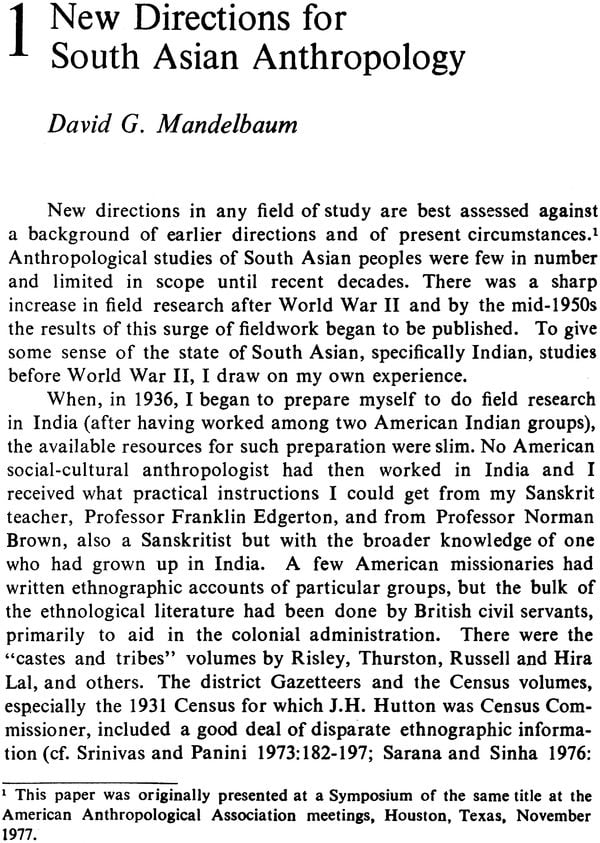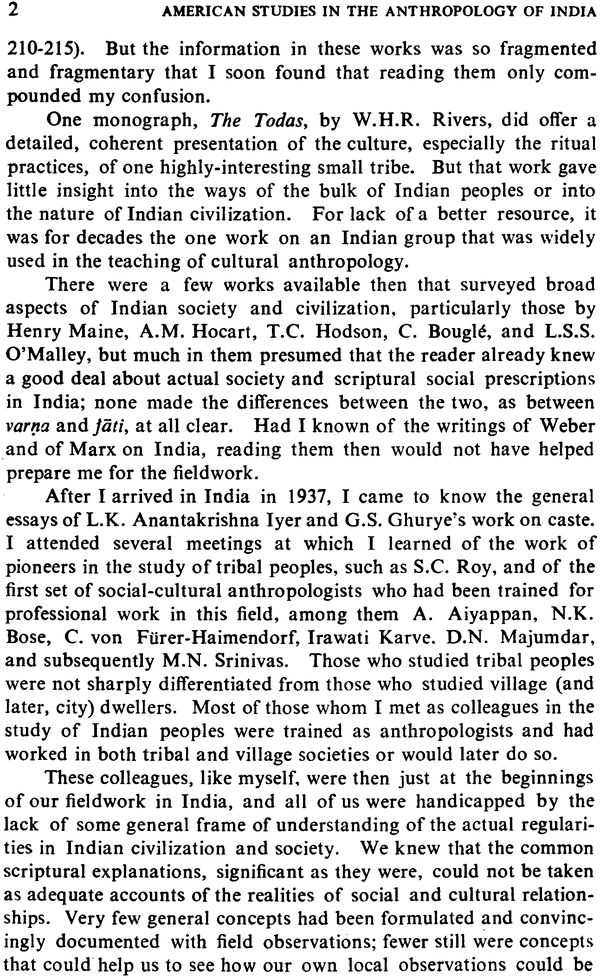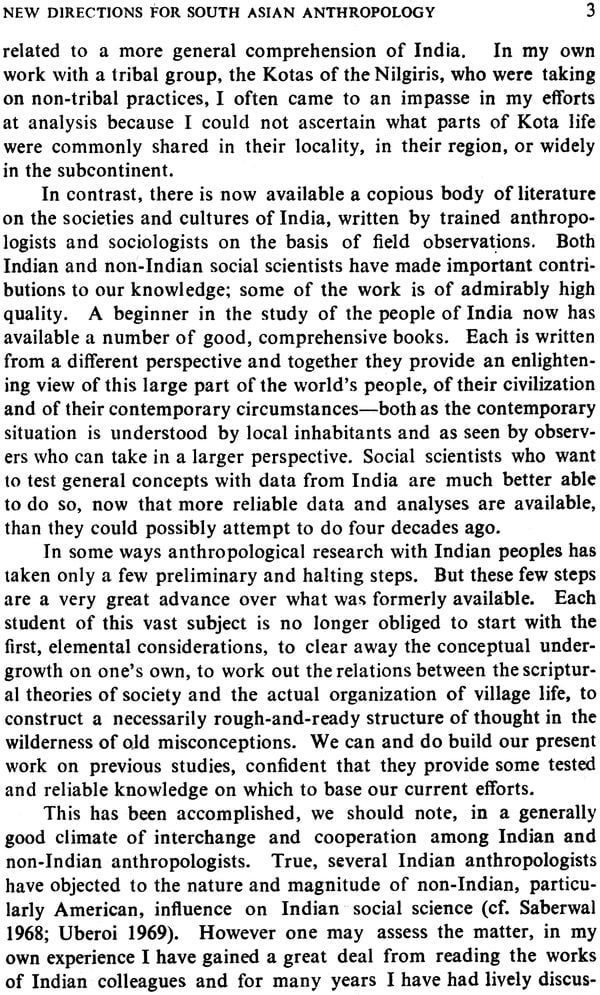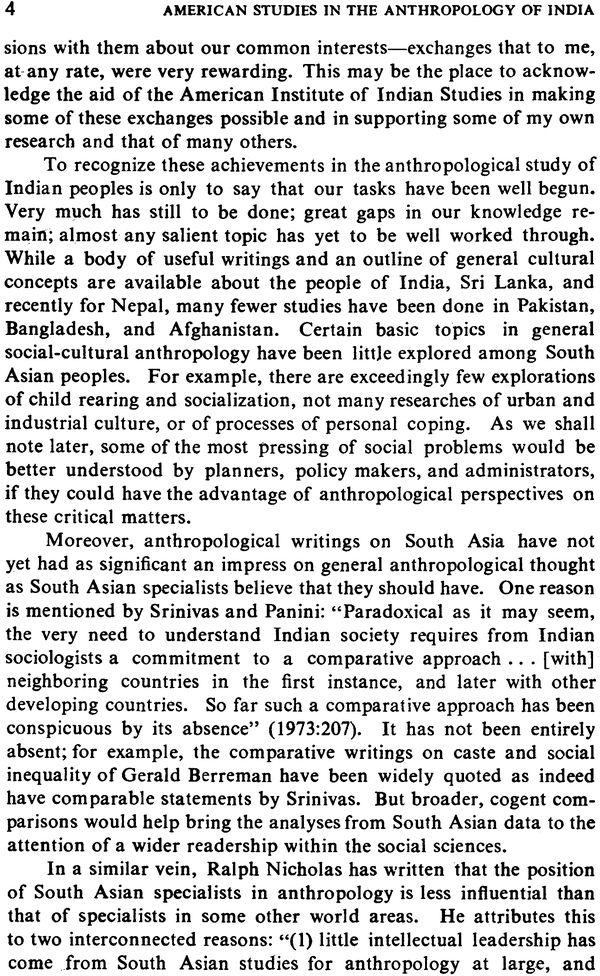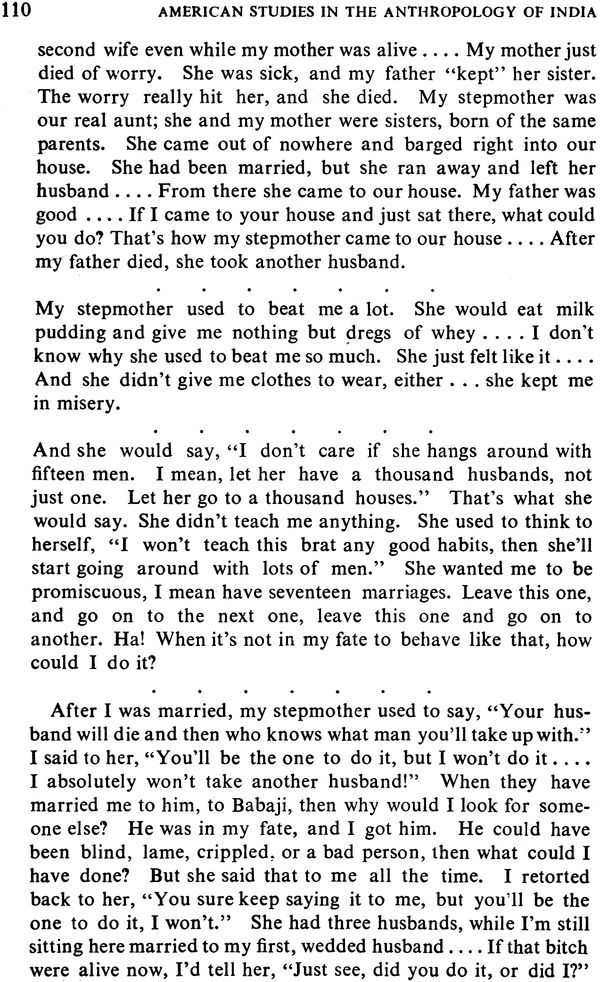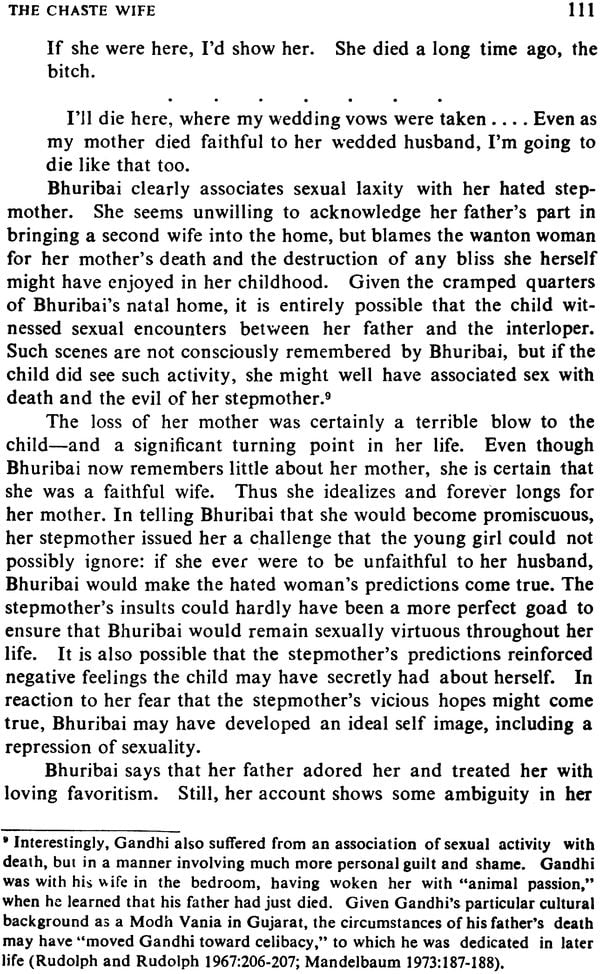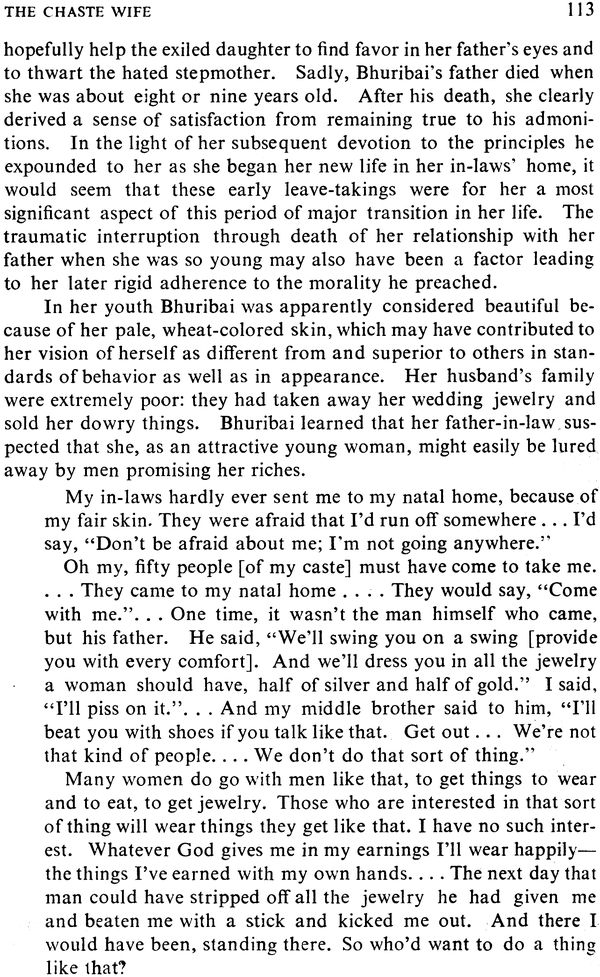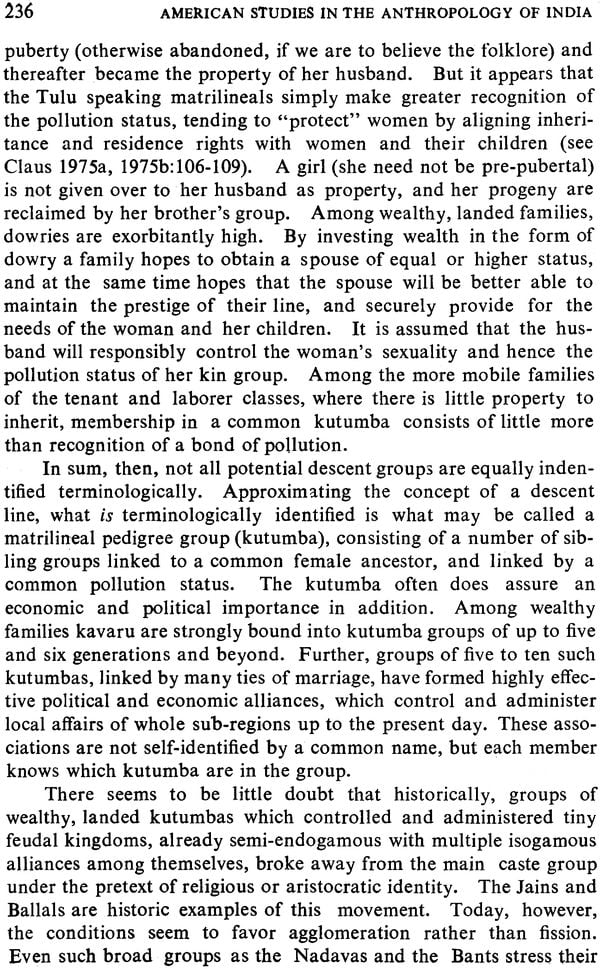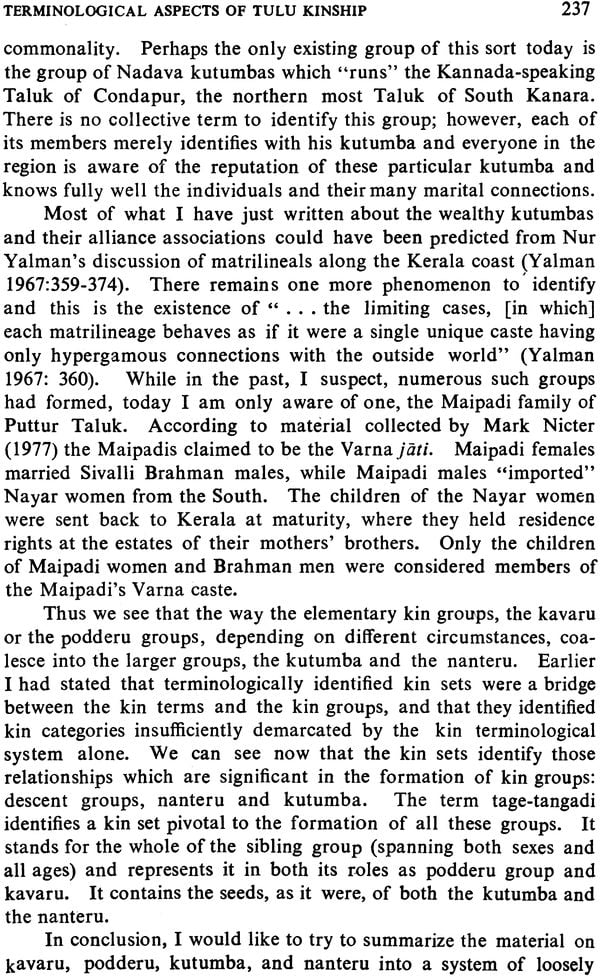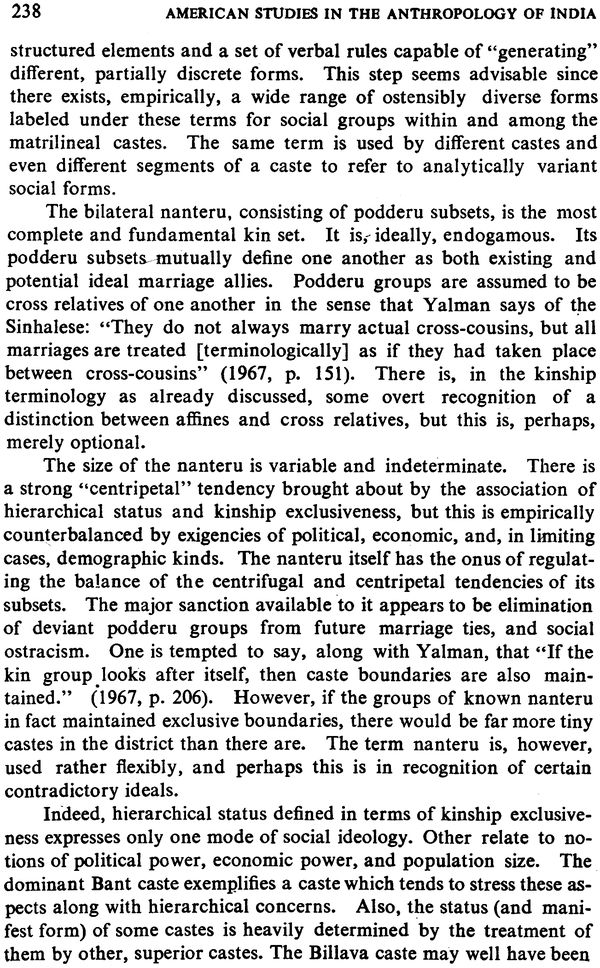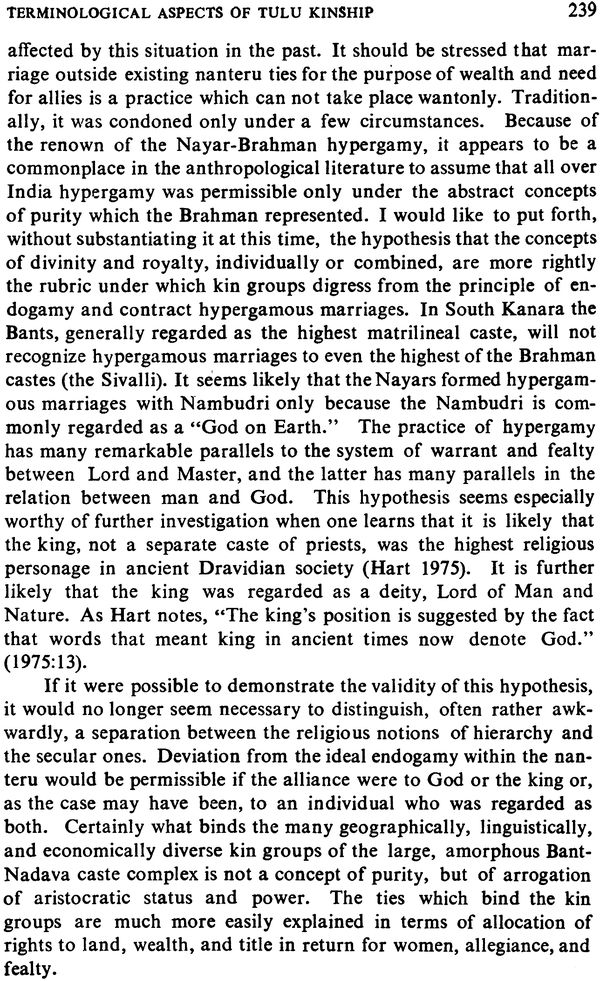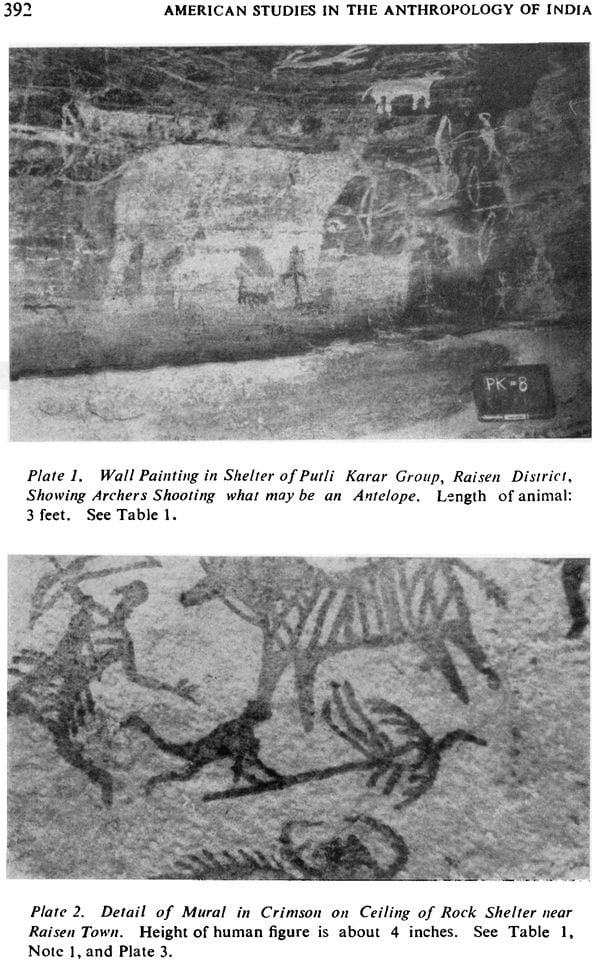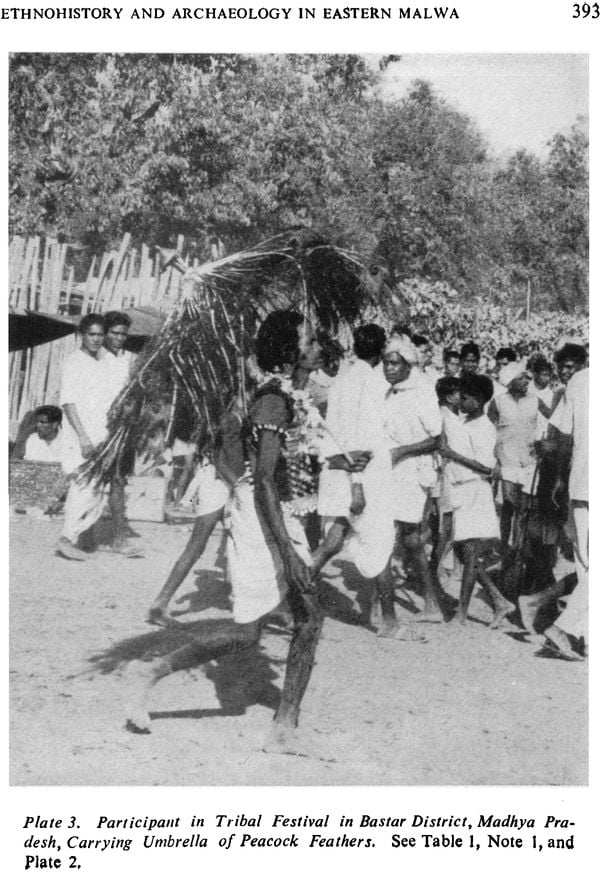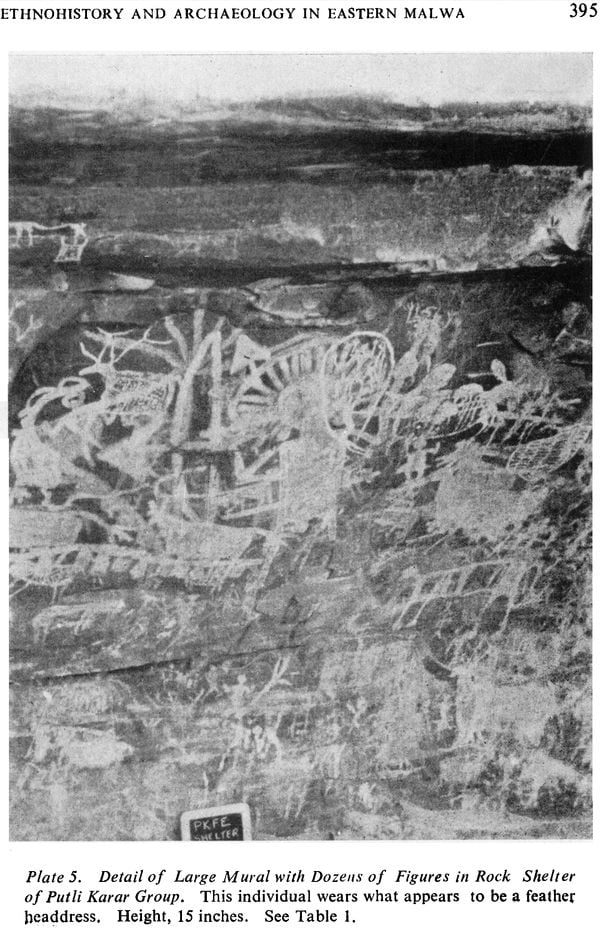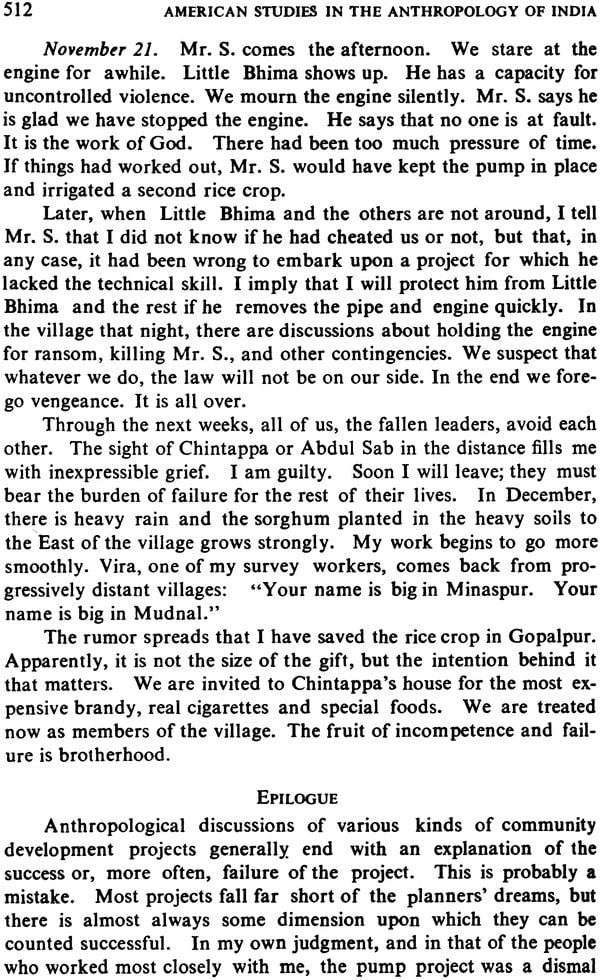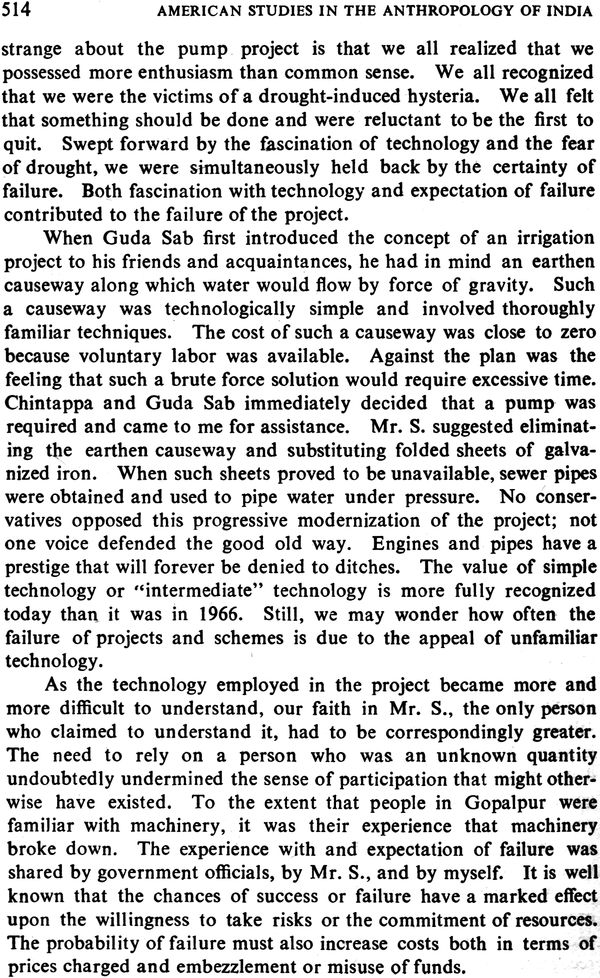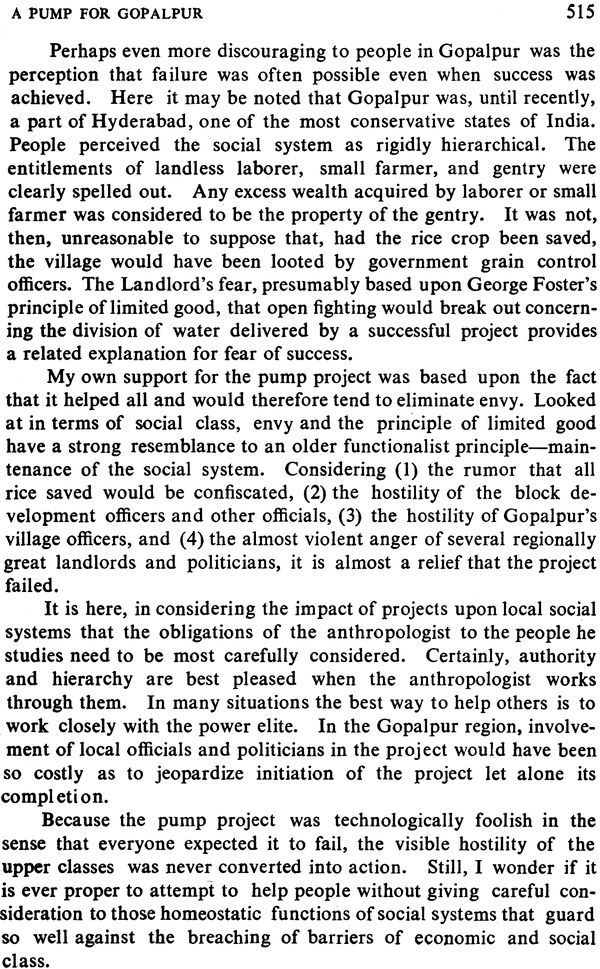
American Studies in The Anthropology of India (An Old and Rare Book)
Book Specification
| Item Code: | NAL222 |
| Author: | Sylvia Vatuk |
| Publisher: | Manohar Publishers and Distributors |
| Language: | English |
| Edition: | 1978 |
| Pages: | 537 (25 B/W Illustrations) |
| Cover: | Hardcover |
| Other Details | 9.0 inch X 5.5 inch |
| Weight | 700 gm |
Book Description
American Studies in the Anthropology of India is a collection of eighteen original essays by former Fellows of the American Institute of the Studies who have carried on anthropological research in India under the sponsorship of the Institute in past years. The essays were compiled and edited by Sylvia Vatuk, Associate Professor and Chairperson of the Department of Anthropology, University of Illinois at Chicago Circle, who is herself a former Junior Fellow of the Institute. The authors are, with one exception, American scholars who have specialized in the anthropology of India during their academic careers, and most of whom are currently teaching on the faculties of American universities and colleges.
The subjects of their essays range widely over major sub-disciplines of physical anthropology, social/cultural anthropology, and chapters dealing with "The Study of India as a Civilization," "India through Life Histories and Journals," "Kinship and Marriage in India," "Indian Oral and Musical Traditions," "Archaeology and Physical Anthropology of India," and "Social Change in Modern India,"
The volume was put together for issue on the occasion of the Tenth International Congress of Anthropological and Ethnological Sciences, convened in New Delhi in December 1978. It both commemorates the contribution made by the American Institute of Indian Studies to the advancement of scholarly research in and on India during the past fifteen years, and presents a broad sample of the kinds of topics and issues on which such research in the field of in the field of anthropology has focussed.
Sylvia Vatuk is Associate Professor and Chairperson of the Department of Anthropology, University of Illinois at Chicago Circle in Chicago. Illinois. She has done considerable research in India on such subjects as family structure, kinship, marriage, gift exchange, and urbanization, and is the author of a book on white-collar migrants in the city of Meerut, entitled Kinship and Urbanization (University of California Press, 1972), as well as of a number of articles in professional journals.
The idea of this volume was first conceived by David G. Mandelbaum, who suggested early in 1977 that the American Institute of Indian Studies might consider the publication of a collection of writings by some of its former Fellows, to be issued on the occasion of the convening of the Tenth International Congress of Anthropological and Ethnological Sciences in New Delhi in December 1978. Such a volume of essays by scholars who have carried out anthropological research in India since 1963 under the Institute's auspices would serve as a concrete illustration of its elsewhere in the world about Indian society and culture. The Congress meetings would provide a most appropriate opportunity to bring together examples of the work of a number of prominent American researchers in the field of Indian anthropology and of other junior scholars who may be expected to assume a similar role in the years to come. While commemorating the work of the Institute in sponsoring scholarly endeavors in a broad spectrum of research topics, such a volume would also provide an opportunity for the Fellows themselves to individually express their debt to the Institute for its generous support of their work, and for the Institute to express in a small way its gratitude to India, and to the Indian scholarly community in particular, for its hospitable reception of so many American researchers over the years. David Mandelbaum's proposal was enthusiastically received by the American Institute of Indian Studies, which subsequently arranged for funding through the generous support of the Smithsonian Institution.
All former Fellows of the Institute in the field of anthropology, recipients of pre-doctoral faculty research grants, were invited to contribute papers. While the wish of the editor was to be as flexible as possible in terms of subject matter and format, in view of the wide range of research interests among the contributors, it was requested that all paper represent a scholarly contribution to the anthropology of India, whether substantive or theoretical, and that they be based on investigations carried out while the Fellow was in India on an Institute grant. Each of the papers received and published herein, with the exception of the by Victor Barnouw-one of the first Faculty Fellows-were written or revised especially for this volume and are here presented in print for the first time. The issues dealt with are wide-ranging of subject matter and approach, and give some indication of the theoretical, regional, and substantive breadth of American anthropological research interest in India over the past one and a half decades, as described as discussed by David Mandelbaum in his introductory essay.
In the course of editing this volume, with a short deadline and the difficulties of long-distance communication between my office and that of the Institute in Chicago, and the New Delhi offices of the Institute and of the publisher, I incurred debts to may people for their assistance and cooperation. First of all, I am grateful to my anthropological colleagues, the former Fellows who responded with interest to the initial proposal for this volume, and some of whom were able to offer contributions and to submit to the inconveniences of my unavoidably short time schedule. As others, Ralph Nicholas was extraordinarily helpful to me with guidance in the handling of editorial matters, particularly in introducing me to those intricacies and mysteries of the mechanics of printing of which an editor must be at least minimally knowledgeable. Kali Charan Bahl answered many questions about the standardization of the transliteration of Indian words, and Joan Erdman was kind enough to carry the edited manuscript to the publisher in New Delhi from Chicago. For secretarial, clerical, and administrative assistance I am grateful to Cynthia sharp Ernst, Judith Krysko, Pamela Boroff, Barbara Kaminski, and Barbara Wichura. Finally, I would like to express my thanks to Edward Dimock and Pradeep Mehendiratta of the American Institute of Indian Studies, to R.C. Jain of Manohar Publications, and to the Smithsonian Institution, for making possible the publication of this volume.
Contents
| Preface | ||
| Note on Transliteration | ||
| Contributors | ||
| I. The Study Of India As A Civilization | ||
| 1 | New Directions For South Asian Anthropology David G. Mandelbaum | 1 |
| 2 | Phenomenal Levels In The Structure of Indian Civilization | 14 |
| 3 | The One And The Many: Varna And Jati As A Symbolic Classification | 35 |
| II. India Through Life Histories And Journals | ||
| 4 | Collecting The Life History Of An Indian Untouchable | 65 |
| 5 | The Chaste Wife: Cultural Norm And Individual Experience | 95 |
| 6 | Masterji's Journal: Selections From The Diary Of A Rural Indian | 139 |
| III. Kinship And Marriage In India | ||
| 7 | Marriage Alliace And The Local Circle Among Some Udayars of South India | 171 |
| 8 | Terminological Aspects Of Tulu Kinship: Kin Terms, Kin Sets, And Kin Groups Of The Matrilineal Castes | 211 |
| 9 | Sibling-Set Marriage, Collateral-Set Marriage, And Deflected Alliance Among Annana Jats Of Jaipur District, Rajasthan | 242 |
| IV. Indian Oral And Musical Traditions | ||
| 10 | The Epic of Guga: A North Indian Oral Tradition | 281 |
| 11 | Texts In Contexts: Oral Traditions And The Study Of Religion In Karimpur | 309 |
| 12 | The Maharaja's Musicaians: The organization Of Cultural Performances At Jaipur | 342 |
| V. Archaeology And Physical Anthropology Of India | ||
| 13 | Ethno history And Archaeology In Eastern Malwa | 371 |
| 14 | Regional Interaction In Indus Valley Urbanization: The Key Factors Of Resource Access And Exchange | 389 |
| 15 | Bio-Cultural Interaction In Prehistoric India | 425 |
| VI. Social Change In Modern India | ||
| 16 | The Sindhis, Mercantile Refugees In India: Problems Of Their Assimilation | 447 |
| 17 | Peasant Adaptation As Process In Land Reform: A Case Study | 460 |
| 18 | A Pump For Gopalpur | 496 |
